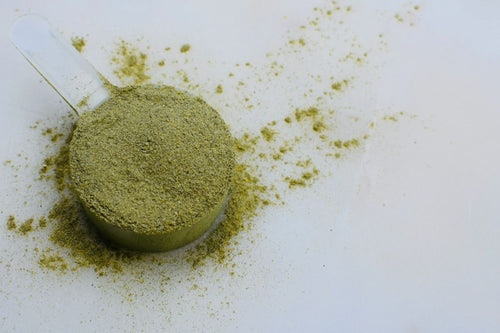Key Takeaways
- Ashwagandha is a widely used adaptogenic herb with numerous benefits for both mental and physical health.
- It can be consumed in various forms, including powder and capsule, derived from both roots and leaves of the plant.
- Adaptogens like ashwagandha help the body manage stress and promote overall well-being by assisting in adapting to stressful situations.
- Benefits of ashwagandha include improved sleep, reduced stress and anxiety, potential anti-cancer properties, and enhanced reproductive health in men.
- Other adaptogenic herbs include Rhodiola, Astragalus, Schisandra, Siberian Ginseng, and Holy Basil, each offering unique benefits.
- Despite its benefits, ashwagandha may have side effects for certain individuals, especially those with specific medical conditions or during pregnancy and breastfeeding.
- Consultation with a healthcare professional is advisable before incorporating ashwagandha or any supplement into your routine.
Ashwagandha is one of the most commonly used adaptogenic herbs and it is shown to have a plethora of benefits.
Both the roots and the leaves of ashwagandha are adaptogens and it is most commonly available in powder or pill/capsule form.
If you’re not entirely sure what an adaptogen actually is, they are essentially herbs, plants, or fungi that help the body adapt to different stressors and perform optimally. Adaptogens can obviously also come with many other unique benefits, depending on what it actually is!
So, what are the benefits of taking the adaptogenic herb ashwagandha?
We’ll explore everything that ashwagandha has to offer a little later but, first of all, let’s take a look at what ashwagandha actually is.

What Is Ashwagandha and Is It Adaptogenic?
Ashwagandha is a small, yellow flower-bearing shrub that is native to India and North Africa. It is also known as Withania somnifera, Indian Ginseng, and Winter Cherry.
The name “Ashwagandha” refers to the unusual horse-like smell of the roots, with “Ashwagandha” actually meaning “smell of horse” in Sanskrit.
Ashwagandha, as mentioned, is an adaptogen, meaning it helps the body manage stress and promote overall well-being. It has been used for centuries in ayurvedic medicine for different physical and mental benefits.
Both the roots and the leaves of ashwagandha can be harvested, dried, and ground into a powder which is then used as a powerful adaptogenic supplement. Different suppliers will use one or the other, or both in their extracts depending on their philosophy. (e.g. KSM-66 only uses the root while Sensoril uses the whole plant).
This powder can be mixed into drinks or smoothies, but it is traditionally mixed with ghee, honey, or water. Again - for ease and simplicity, many producers offer it in a pill or capsule form.
If you're interested in trying ashwaganda, be sure to check out our review of the best ashwagandha supplements on the market!

|
Click Here To Check The Latest Prices On SuperFeast Ashwagandha |
Click Here To Check The Latest Prices On Teelixir Ashwagandha |
How Do Adaptogens Work?
As we go about our lives, we are constantly faced with stressful situations - work issues, family commitments, health concerns and many other aspects of our lives can contribute to this.
Over time, the amount of stressful situations we are exposed to adds up and it can create “chronic stress” which can manifest itself as insomnia, anxiety, or depression.
It can also affect us physically by weakening our immune system and creating gastrointestinal or cardiovascular problems.
Adaptogens, such as ashwagandha, ginseng or shialjit and lion's mane work to reduce chronic stress by helping to address and stabilise issues in our physiology that result from long-term stress (e.g. increased cortisol, excess inflammation etc.)
Put simply, they can naturally help raise things that are low, and lower things that are high that are required for our bodies and minds to function optimally. They help our bodies adapt and create a more adequate response to stressful situations.
They do this by adapting the body’s three natural responses to stress; alarm, resistance, and exhaustion. The alarm response (also known as ‘fight or flight’) is the one that we can’t control. It’s primal and programmed into us as humans.
However, the resistance stage is where adaptogens get to work. Here, the body will begin to repair itself after the initial stress, and adaptogens prolong the resistance of the stress response.
In turn, they prevent the third stage (exhaustion) from hitting so hard, and chronic stress can be avoided.

|
Click Here To Check The Latest Prices On SuperFeast Ashwagandha |
Click Here To Check The Latest Prices On Teelixir Ashwagandha |
The Benefits Of Taking Ashwagandha
You might be asking - what does ashwagandha actually do for the body?
Let’s explore some of these health benefits below:
Can Improve Sleep
This is one of the most common reasons why people take ashwagandha. Numerous studies have shown that ashwagandha could be capable of inducing sleep in people that suffer from insomnia. It is particularly effective at helping with this when taken at night.
Can Reduce Stress & Anxiety
As an adaptogen, ashwagandha is often used as a natural alternative to antidepressants for reducing stress and anxiety. It does this by encouraging our bodies to adapt and create a more adequate response to stressful situations.
One study even found that taking ashwagandha was just as effective as certain pharmaceutical drugs without creating any adverse effects.
Can Help Reduce Depression
As well as being able to reduce stress levels and help manage anxiety, it is also believed that one of the effects of ashwagandha root extracts is to help improve depression issues.
Aids In Reducing Blood Sugar Levels
There have been several studies on the effects of ashwagandha on blood sugar. It’s even been suggested that it can help reduce blood sugar levels in people with type 2 diabetes.
Potential Anti-Cancer Properties
Ashwagandha contains withaferin, which is thought to help induce apoptosis and the killing of cancer cells. It’s also believed to disrupt the growth of new cancer cells.
Boosts Reproductive Health In Men
It is believed that taking ashwagandha may help boost testosterone levels and increase fertility in men. One study even found that ashwagandha helps to increase sperm count and motility.
Increases Muscle Mass & Strength
Another study on the benefits of taking ashwagandha found that it noticeably increased muscle size and strength. It was also found that it doubled reductions in body fat percentage.
Reduces Inflammation
Ashwagandha has been found to increase the activity of our bodies' natural killer cells. These are the cells that fight infection and ensure we’re as healthy as possible.
What’s more, it’s also been found to reduce inflammation markers such as CRP (C-reactive protein), which is linked to an increased risk of heart disease.
Lowers Cholesterol & Triglycerides
It’s also thought that taking ashwagandha can further improve heart health by lowering LDL cholesterol levels and triglycerides. This is believed to be closely linked with a reduced risk of heart disease.
Improves Memory & Cognitive Function
Ashwagandha is often used as a natural supplement for boosting memory, and studies have shown that it may even improve memory and brain function issues that have been caused by disease or injury. It has also been shown to improve general memory, task performance, and overall attention.
Can Help Improve Skin And Hair
By reducing excess cortisol and inflammation in the body, Ashwagandha can help restore and maintain healthy skin and hair.
As you can see, there are many reasons why you might want to take the adaptogen ashwagandha.
However, it’s important to know that it does cause some side effects in certain people, should be cycled off on occasion for maximum benefits and if you prefer to take it in the morning, don’t do so on an empty stomach as it can create a mild stomach ache.

| Click Here To Check The Latest Prices On SuperFeast Ashwagandha | Click Here To Check The Latest Prices On Teelixir Ashwagandha |
Other Adaptogenic Herbs
Ashwagandha is just one of the many adaptogenic herbs available! Here are a few others that you might be interested in:
- Rhodiola rosea (Rhodiola): Often referred to as "golden root," rhodiola is known for its ability to combat fatigue and improve mental clarity. It's particularly helpful for those who experience stress-related burnout.
- Astragalus membranaceus (Astragalus): This herb is a powerhouse for the immune system. Astragalus is believed to help the body fight off illness and may even shorten the duration of a cold.
- Schisandra chinensis (Schisandra): Schisandra is a climbing vine that's known as an "energy tonic" in traditional Chinese medicine. It's thought to enhance physical endurance and improve mental focus.
- Eleutherococcus senticosus (Siberian Ginseng): While not technically ginseng, Siberian ginseng offers similar benefits. It may help to improve physical performance and reduce feelings of fatigue.
- Holy Basil (Tulsi): This revered herb in India is an adaptogen with powerful anti-inflammatory properties. It may also help to manage anxiety and improve sleep quality.
Is Ashwagandha Safe For Everyone?
As with all supplements, it’s important to know whether or not it is safe for you to take ashwagandha.
Ashwagandha has been reported to have some negative side effects by a small proportion of people - if you’re currently taking any medication to treat any of the following, you should consult a doctor before considering taking ashwagandha as a supplement:
- Type 1 Diabetes
- Hypertension
- Anxiety
- Depression
- Insomnia
- Thyroid Disease
Ashwagandha should be avoided by anybody suffering from autoimmune diseases including rheumatoid arthritis and lupus. You should also avoid taking ashwagandha if you’re pregnant as there may be a risk of miscarriage.
It shouldn’t be taken if you’re currently breastfeeding either, as it could be passed onto your baby who won’t have developed the tolerance for ashwagandha.
Again, we can’t stress enough - with all supplements and substances, you should always consult your GP or medical practitioner before starting them just to be on the safe side! Always stick to the recommended dosage to avoid the potential side effects of taking large doses.
The quick video below gives a great rundown on this amazing adaptogen if you’re up for a quick watch!
Frequently Asked Questions
Q1. What happens when you take ashwagandha daily?
Regular ashwagandha consumption may improve sleep, reduce stress and anxiety, and potentially lower blood sugar and cortisol levels.
Q2. What is the best adaptogen herb?
There's no single "best" adaptogen herb - each offers unique benefits. Ashwagandha excels in stress management, rhodiola combats fatigue, astragalus supports immunity, etc.
Q3. Can ashwagandha lower cortisol too much?
While ashwagandha helps regulate cortisol, excessive intake can theoretically lead to abnormally low levels. It's best to consult a healthcare professional for proper dosage.
That’s A Wrap
As you can see, Ashwagandha is a powerful adaptogen that can help your mind and body deal with the many stresses and issues that life will inevitably throw your way.
With a stack of different health benefits that have been celebrated by traditional medicine for millennia and now gaining notoriety in modern science - Ashwagandha is a fantastic natural supplement for most people!














